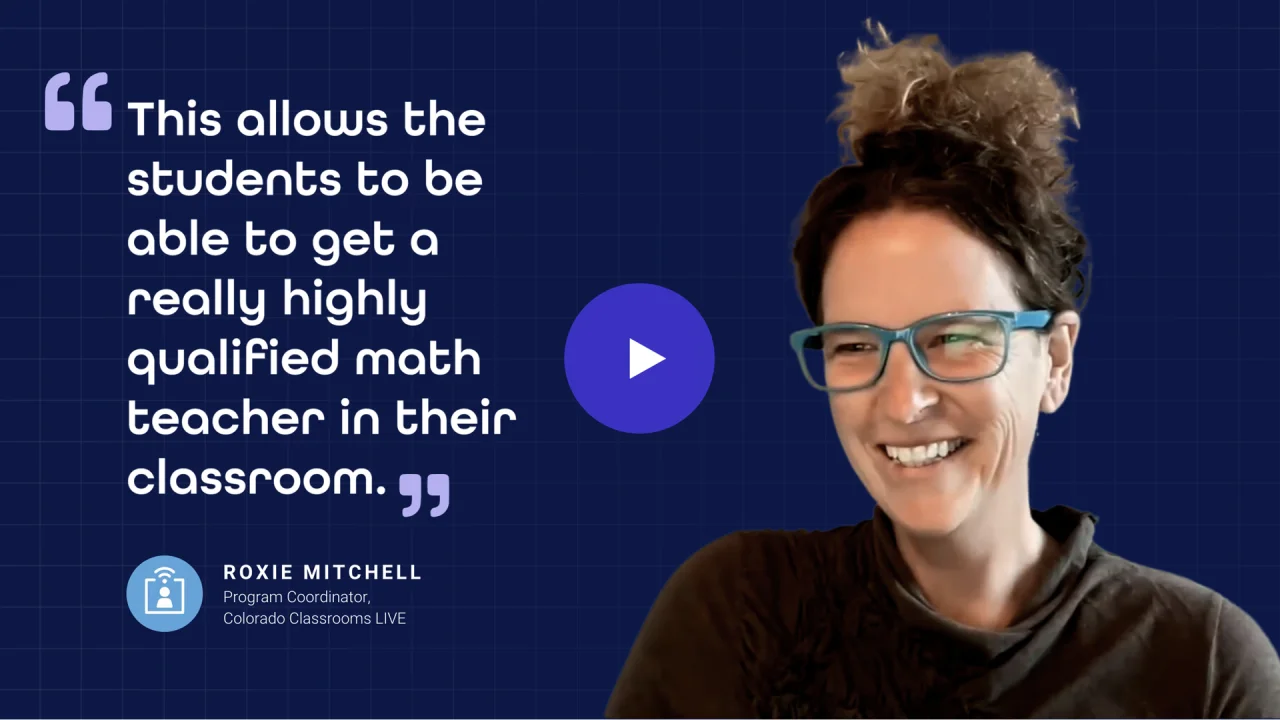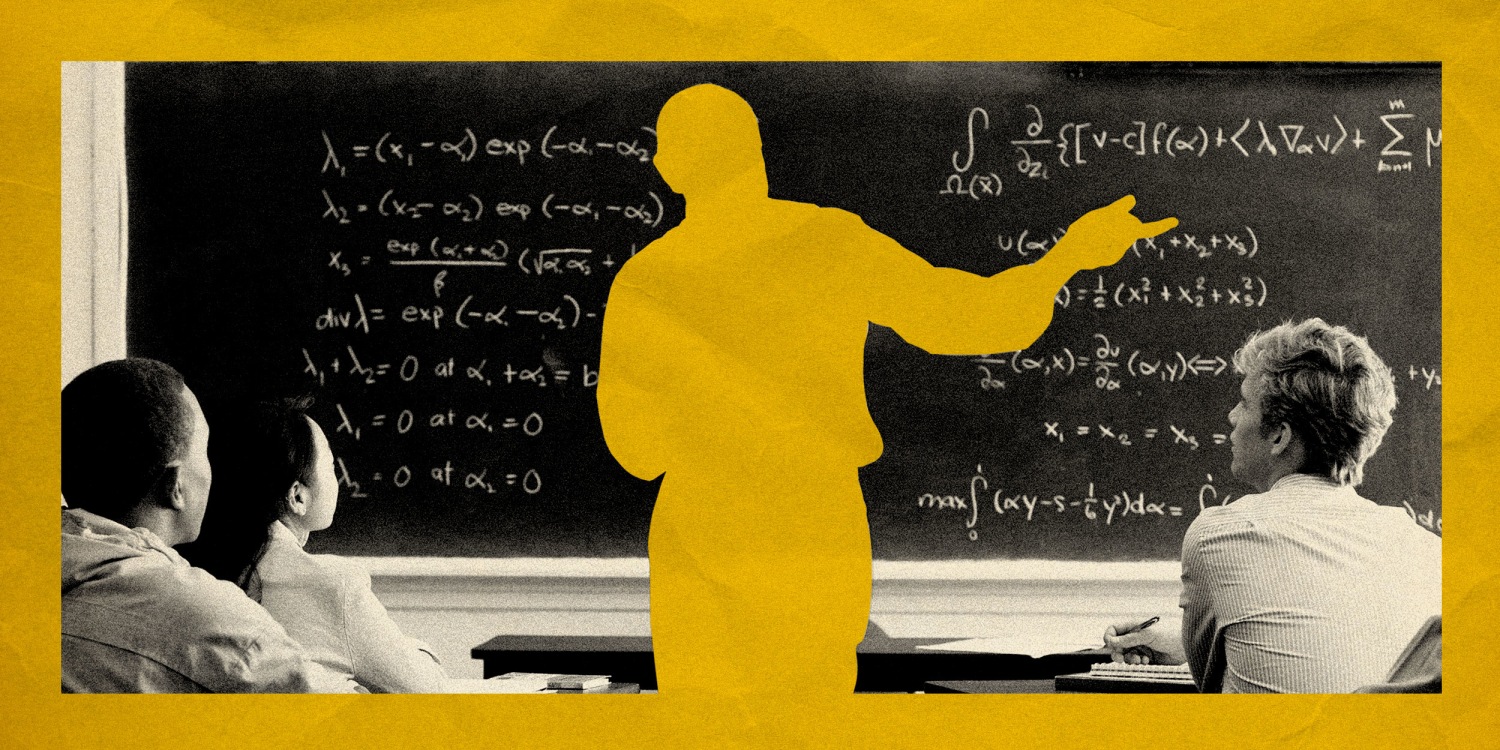All Concerning Professional Math Educators: Their Role in Fostering Student Growth and Achievement in Mathematics Education
Certified math educators are necessary fit students' understanding and recognition of mathematics. Their deep knowledge and effective teaching strategies can greatly influence pupil results. These instructors not only impart mathematical abilities however likewise foster a comprehensive atmosphere that satisfies diverse finding out demands. As they adopt cutting-edge techniques, the inquiry occurs: exactly how do these methods specifically enhance trainee engagement and success in mathematics?
The Value of Certified Mathematics Teachers in Education
Although lots of aspects add to trainee success in mathematics, the existence of qualified mathematics educators stands out as a vital component in cultivating reliable learning atmospheres. Research constantly shows that trainees taught by instructors with solid mathematical backgrounds have a tendency to show higher levels of understanding and success. Certified mathematics educators not only have a deep understanding of mathematical ideas yet also the pedagogical abilities essential to share complex concepts in obtainable ways. They can identify pupils' private demands and adapt their mentor methods accordingly, promoting inclusivity and interaction. On top of that, their proficiency enables them to create a favorable class ambience that motivates risk-taking and strength in analytical. This helpful setting fosters a growth state of mind among pupils, boosting their confidence and motivation in maths. In general, certified math educators play a vital duty in forming pupils' perspectives toward math, eventually affecting their future opportunities and academic trajectories.
Key Qualities of Reliable Mathematics Educators
Reliable math teachers possess several key top qualities that boost their teaching effectiveness. These include deep subject knowledge, solid interaction abilities, and adaptive mentor techniques that accommodate diverse discovering demands. Recognizing and growing these qualities can greatly influence trainee understanding and interaction in mathematics.
Deep Subject Understanding
While a strong pedagogical method is essential, deep subject knowledge stays a cornerstone of efficient mathematics teachers. Such understanding makes it possible for teachers to recognize mathematical concepts extensively and to expect student false impressions. Educators with a strong understanding of mathematics not just provide material with confidence yet additionally connect numerous subjects, cultivating a richer learning atmosphere. They are furnished to apply varied teaching techniques that provide to various learning designs, making complex ideas much more obtainable. Deep subject expertise encourages instructors to engage in purposeful discussions with students, encouraging essential reasoning and problem-solving abilities. Eventually, the deepness of understanding that mathematics teachers possess substantially influences trainees' scholastic development and achievement in mathematics, laying a strong foundation for future knowing.

Strong Communication Abilities
Deep subject understanding alone wants for cultivating an effective learning setting in mathematics; strong interaction skills are equally essential for effective mathematics teachers. These abilities make it possible for instructors to communicate complex principles in accessible means, ensuring that trainees grasp foundational ideas. Reliable communication includes not just quality but also the capacity to actively pay attention, motivating pupil involvement and attending to misconceptions. By fostering an open dialogue, educators create a helpful class ambience where students feel comfy asking concerns and sharing their ideas. Furthermore, strong communicators can adapt their language and explanations to suit varied understanding designs, enhancing student interaction and understanding. Eventually, effective communication bridges the space between an educator's understanding and a trainee's understanding, significantly affecting scholastic achievement in maths.
Adaptive Training Methods
A variety of flexible mentor approaches are crucial for reliable mathematics instructors intending to fulfill the diverse needs of their pupils. These approaches make it possible for teachers to tailor their guideline based upon specific knowing rate of interests, styles, and capabilities. qualified math teachers. Techniques such as distinguished guideline, where instructors customize content, process, or item, aid address varying effectiveness degrees. In addition, including modern technology and interactive tools can boost interaction and assist in tailored discovering experiences. Developmental evaluations allow educators to check development and adjust mentor techniques as necessary. Collaborative team work advertises peer understanding, promoting an encouraging setting. By employing these adaptive approaches, math instructors can produce inclusive class that encourage all students to grow and attain their scholastic objectives, inevitably cultivating a love for mathematics
Ingenious Mentor Methods Employed by Mathematics Teachers
As instructors look for to involve pupils better, cutting-edge mentor methods have emerged as a focal factor in math classrooms. These methods intend to enhance understanding and retention of mathematical principles. One famous technique is using modern technology, such as interactive software and online simulations, which enables trainees to envision complex issues and get prompt feedback.Additionally, project-based discovering motivates cooperation and real-world application of math principles, cultivating crucial thinking skills. Gamification, where mathematics concepts are integrated right into game-like settings, has also acquired popularity, making finding out more delightful and inspiring for students.Moreover, set apart direction tailors lessons to suit varying ability degrees, guaranteeing that all students can proceed at their very own pace. By employing these ingenious techniques, mathematics teachers create dynamic discovering experiences, inevitably promoting better student development and success in maths.
Producing Inclusive Understanding Settings
Producing comprehensive discovering environments in maths education and learning involves implementing varied understanding methods and cultivating collective group tasks. These approaches accommodate the diverse demands of pupils, ensuring that every person has the possibility to do well and involve. By focusing on inclusivity, mathematics instructors can cultivate a class environment that sustains all students.
Diverse Learning Techniques
While numerous instructors undertaking to promote comprehensive knowing settings, implementing diverse discover this discovering methods is important for properly reaching all trainees. These strategies include a variety of training approaches tailored to suit differing discovering capabilities, histories, and styles. For instance, integrating visual help, manipulatives, and modern technology can engage students that might fight with conventional instruction. In addition, differentiated direction permits instructors to customize evaluations and assignments, guaranteeing that every student can access the curriculum at their own degree. Culturally responsive rearing also plays a considerable duty in recognizing and valuing the varied experiences of students, thereby improving their link to the product. By making use of these diverse discovering methods, qualified math educators can create a supportive ambience where all pupils are empowered to succeed in maths.
Collaborative Team Activities

The Impact of Professional Mathematics Teachers on Pupil Success
The presence of qualified mathematics instructors substantially influences student accomplishment, as effective instruction can link gaps in understanding and cultivate a favorable knowing setting. Research study suggests that pupils instructed by knowledgeable educators demonstrate higher levels of proficiency in mathematical concepts contrasted to their peers. Qualified mathematics instructors have a deep understanding of mathematical web content, enabling them to present product in diverse manner ins which deal with different discovering styles. This versatility not only enhances understanding yet also enhances pupil confidence in their abilities.Moreover, certified teachers usually use developmental evaluations to keep an eye on trainee progression, permitting prompt interventions when essential. Their capability to produce engaging lessons encourages trainee involvement and advertises a growth attitude. As an outcome, the impact of qualified math educators prolongs beyond plain scholastic performance; it cultivates a feeling of inquisitiveness and resilience in pupils, eventually bring about improved outcomes in mathematics and a stronger foundation for future discovering.
Approaches for Engaging Students in Mathematics
Engaging students in mathematics requires a multifaceted approach that integrates diverse methods to catch their interest and boost understanding. One reliable approach is the usage of real-world applications, allowing students to see the significance of mathematical ideas in daily life. Incorporating technology, such as interactive software and online resources, can additionally cultivate involvement by providing vibrant learning experiences.Group job encourages partnership, allowing students to discover from each other and create analytic abilities in a supportive setting. Furthermore, integrating games and hands-on tasks can make learning more accessible.differentiated and delightful instruction accommodates different finding out designs, ensuring that all trainees can connect with the product. Providing prompt responses helps trainees identify their progression and locations for improvement, fostering a development frame of mind. By utilizing these techniques, instructors can develop an engaging mathematics classroom that promotes student development and accomplishment.
The Duty of Professional Growth in Enhancing Math Mentor Abilities
While lots of teachers recognize the importance of reliable teaching approaches, professional advancement plays Learn More an essential function in improving mathematics training abilities (qualified math teachers). Continual training chances allow educators to stay current with pedagogical advancements, mathematical material, and technological tools. Workshops and workshops give forums for educators to work together, share best methods, and discuss difficulties they run into in the classroom.Furthermore, expert advancement promotes a development mindset amongst instructors, motivating them Go Here to review their techniques and adjust their methods based on pupil needs. This recurring knowing procedure not just enhances instructors' mathematical understanding yet also furnishes them with ingenious instructional techniques that can result in improved student interaction and achievement.Ultimately, an organized professional growth program can significantly affect the high quality of math education, ensuring that educators are well-prepared to motivate and direct their trainees toward success in mathematics
Frequently Asked Concerns
What Credentials Are Necessary to Come To Be a Math Educator?
To become a math instructor, individuals typically require a bachelor's degree in maths or education and learning, mentor accreditation, and a strong understanding of mathematical ideas. Added credentials may include specialized training in pedagogy and classroom monitoring skills.

Exactly How Do Mathematics Teachers Assess Trainee Development in the Class?
Math instructors analyze trainee progress via various approaches, including tests, examinations, and projects (qualified math teachers). They also make use of observational assessments and trainee participation to determine understanding, readjusting instruction based upon individual and team performance to enhance discovering outcomes
What Challenges Do Math Educators Commonly Face?
Math instructors generally deal with obstacles such as differing student ability levels, restricted resources, educational program restrictions, and the need to involve pupils successfully. Furthermore, they usually come across pressure to enhance standard test scores and handle class behavior.
Exactly How Can Parents Assistance Their Youngster's Math Education and learning?
Moms and dads can sustain their kid's math education and learning by offering a conducive discovering setting, participating in math-related activities, urging a favorable attitude in the direction of difficulties, and maintaining open interaction with teachers to check development and address worries.
What Resources Are Available for Mathematics Teachers to Improve Their Skills?
Different resources are available for math teachers, consisting of on-line courses, professional growth workshops, peer collaboration groups, educational web sites, and mentor journals. These tools enhance instructional strategies, strengthen subject expertise, and inevitably improve trainee understanding outcomes in mathematics. Qualified mathematics instructors are crucial in shaping trainees' understanding and appreciation of mathematics. Several elements contribute to trainee success in mathematics, the existence of qualified mathematics instructors stands out as a crucial element in fostering reliable discovering environments. Furthermore, qualified mathematics educators help with these communications by strategically grouping trainees, ensuring that each group consists of a mix of ability levels and histories. The presence of certified mathematics instructors considerably affects pupil accomplishment, as reliable instruction can connect spaces in understanding and promote a positive learning atmosphere. Mathematics teachers commonly deal with challenges such as differing student skill levels, limited sources, curriculum restraints, and the demand to engage pupils properly.